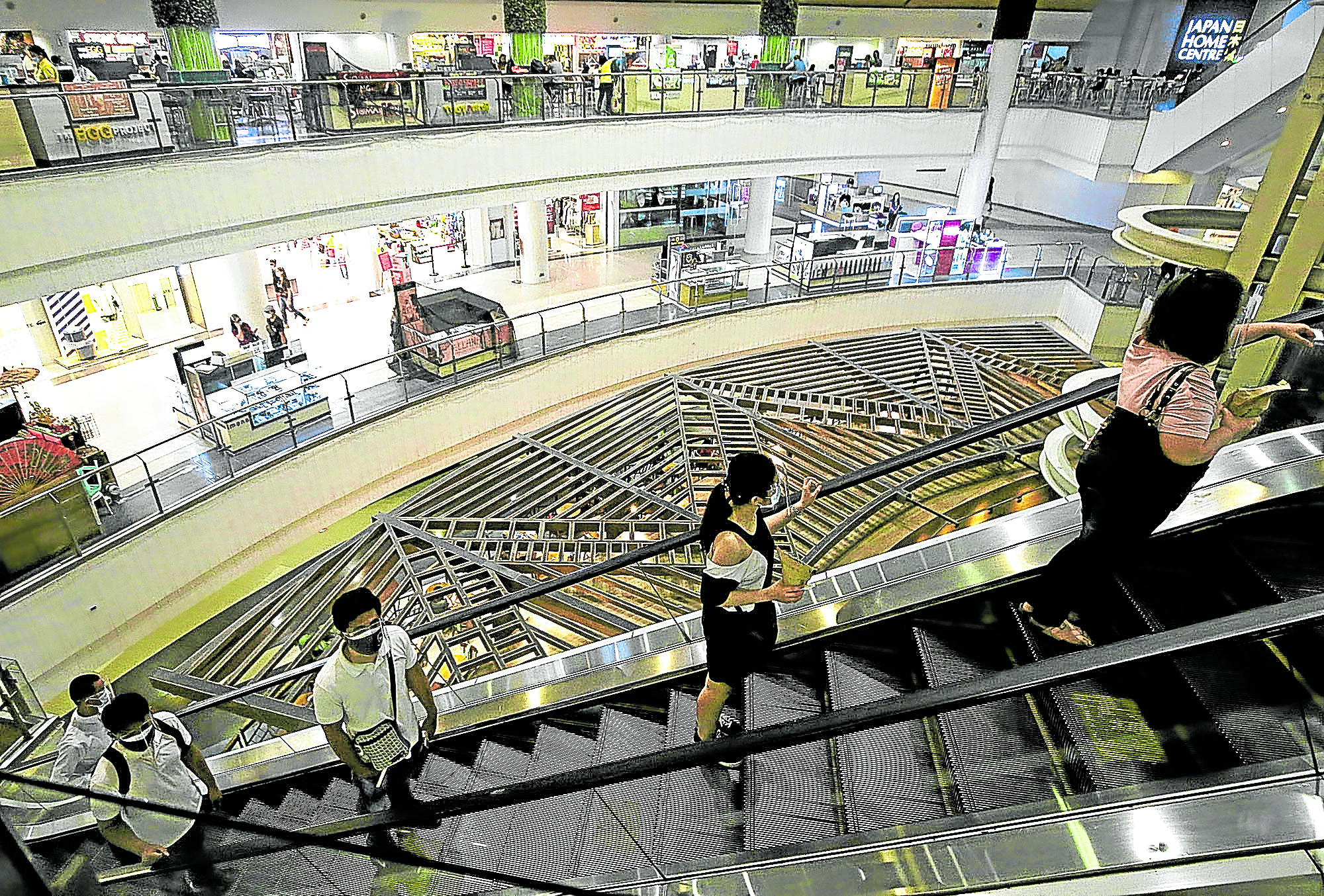The pandemic has significantly interrupted the long run of growth of the Philippines’ consumer-driven economy, severely affecting mall operators and retailers. Colliers believes that the COVID-19-induced interruptions have altered the immediacy in which retailers must innovate to remain relevant.
Aside from complying with health measures and social distancing protocols mandated by the government, mall operators should also monitor changes in households’ spending patterns, repurpose vacant mall space and continue providing concession to struggling tenants.
Retailers, on the other hand, should aggressively differentiate by tapping technological advantages and pursuing omnichannel strategies.

Mall operators should monitor changes in households’ spending patterns, repurpose vacant mall space, and continue providing concession to struggling tenants.
Monitor changes in households’ spending patterns
For malls that will open for the next 12 to 24 months and retailers that are planning to capture holiday spending, it is important that they closely monitor spending patterns of households and how they apportion incomes.
For instance, retailers should closely observe the Philippine Statistics Authority (PSA)-provided breakdown on household expenditure. As of the second quarter of 2020, when the strictest part of the lockdown was imposed all over Metro Manila, food and non-alcoholic beverages demand continued to grow while footwear and clothing decelerated by 40 percent year on year. Spending on restaurants and hotels also plummeted by 66 percent during the period.
In our view, these changes in consumer preferences should be factored into the retail mixes of upcoming malls.
Conversion and repurposing of vacant spaces
Landlords seeing rising vacancies in their malls should explore the viability of converting these vacant spaces into flexible workspaces, subject to strict compliance with social distancing measures.
This is crucial given that malls are near residential communities. This arrangement should significantly reduce employees’ commuting time, and improve work-life balance. We recommend developers explore the possibility of converting vacant spaces into fulfillment centres or micro warehouses to enable retailers reach last mile deliveries.
Differentiate using technological advantages
Due to the pandemic and lockdowns, Filipino consumers have learned to lean heavily on shopping from the comfort of their homes. With several retailers already shifting online and partnering with delivery platforms, Colliers expects competition among retailers to further intensify.
Hence, as the need to differentiate and outperform competitors heightens, retailers should aggressively and proactively look for technological advantages. Colliers encourages retailers to partner with app developers and maximize mobility maps to gauge consumer behavior and how it evolved during the pandemic.
Stakeholders should also consider the possibility of implementing scan-and-go technologies wherein shoppers use smartphones to scan and pay for products as this reduces contact points and is more convenient.
Online platforms, personal shopping services
Some mall operators have introduced curbside pick-ups, wherein customers are offered a safe option to get their orders. Others have rolled out personal shopper services to reduce the risk of transmitting the COVID-19 virus and to enable contactless shopping.
Tapping pent-up retail demand
Mall operators and retailers may still tap pent-up demand.
By expanding online strategies and partnering with app developers to facilitate seamless delivery, retailers should be able to offset any softer retail demand due to the COVID-19 pandemic and the government’s implementation of a lockdown.
We recommend that mall operators expand their e-commerce platforms. Retailers should maximize mall developers’ online sites and social media platforms. In our opinion, retailers should remain relevant by ramping up client engagement efforts and partnering with delivery platforms.
Ramp up client engagement to stay top of mind
We recommend that retailers, especially higher-end brands, be more innovative to stay at the top of consumers’ minds. This may be in the form of home deliveries or personal shoppers.
We encourage mall operators and retailers to further innovate as they intend to capture a bigger size of the domestic market.
Social media marketing to surge
Based on the results of a survey conducted by Colliers Philippines, close to 80 percent of the respondents encounter advertisements for products and goods online via social media. Retailers could take advantage of this by further strengthening their social media presence to expand the reach of their products.
Colliers believes that mall operators and retailers should strengthen their online presence by either utilizing existing e-commerce websites or setting up their own platforms to market their products.
Recovery in retail demand
Economic agencies and independent think tanks are projecting a faster economic recovery in 2021. Positive news about the successful rollout of an effective vaccine against COVID-19 should also stoke the economy. Colliers believes that this is likely to have a positive impact on retail spending across the country.
Positive news about several macroeconomic indicators are encouraging. Filipinos working abroad continue to send in money and this has been keeping the Philippine economy afloat.
The central bank has been aggressive in reducing interest rates and this should further prop up spending. Employment rate has been improving and the gradual resumption of public transportation should improve consumer traffic within malls.
At this point, economic indicators point to a faster rebound in 2021. This trend should have a positive impact on the Philippine economy, which is primarily consumption-driven.

